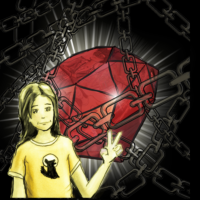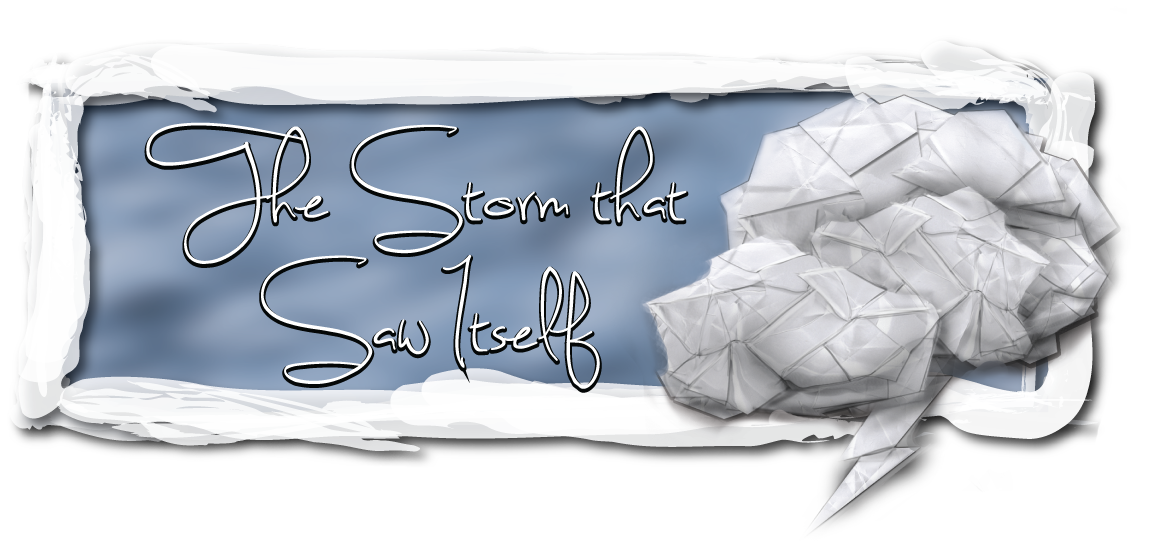– 7 –

An ant becomes immortal. At first this is all wine and roses. Then it remembers that it is an ant. It becomes displeased with its immortality and finally it becomes ant-wroth. Its trail surges up with an awful nimbus of destruction. It begins to crawl slowly across the world.
It is ruinous.
It is deadly.
Where it goes it leaves a line of nothing; in its trail the world is made as not. Long before the sun’s explosion will bring a natural culmination to the planet’s story, the ant’s criss-crossing trail, covering everything, is certain to bring it to an end.
What a bad ant!
It crawls across Woodbridge. It crawls across Kesgrave. It leaves a needle-thin track of uttermost devastation behind.
Men gasp. Women faint. Actually women don’t faint, but they would have, if their corsets had been tighter. A somewhat loopy dog barks, rather a lot.
The ant crawls into Ipswich.
It is cold-hearted now. It has become the cruelest ant. It crosses over a dead bird without even pausing to take any of the delicious food of it back to its former mound.
They wouldn’t recognize it any longer anyway.
Nobody appreciates the lonely suffering of an immortal ant.
The ant crawls up a building wall, marginally threatening the building’s ability to meet code.
It crawls in through Jane and Martin’s kitchen window, leaving a burning trail of non-being behind it.
Uh oh, ant! The Tao precedes being and non-being.
The more it is used, the more it produces: the more you speak of it, the less you comprehend. An ant may crawl into through a kitchen window, but Jane squishes it with her finger.
A good knot needs no rope to tie it, and it can not come undone.
(Hat tip: the Tao te Ching.)
Jane looks at the ant paste on her finger. She doesn’t want to lick it off. It’s immortal. But she doesn’t want to waste it, either! So she bakes it into cookies.
“Waste not, want not!” she advises, to us all.
She shares the cookies with Martin, and they eat. Then Jane pushes the last few crumbs around on her plate, pretending they are warring gods and demons, and says, “Did you know that five hundred years after you become an immortal, Heaven sends a terrible finger to kill you?”
“You hadn’t mentioned,” Martin says. “I mean, not since dinner, you hadn’t.”
“It’s true,” Jane says. “Also, I think it’s somewhat faster for ants.”
Martin is licking off one of his fingers. He pauses. “Oh, God,” he says. “Did I just eat an immortal bug again?”
“Happy birthday!” declares Jane.
“It’s not my b—”
Martin doesn’t want to lie to Jane unintentionally. He stops mid-sentence. He tries to count the days. He thinks.
“It’s probably not my birthday,” he says.
“When is?”
“I dunno,” Martin says. “I was born a long time ago. Then I got tied up by a dwarf! That always plays havoc with your sense of time.”
“That’s ridiculous,” Jane says. “The svart-alfar are extremely punctual.”
“You try keeping time by calendar beast,” Martin says.
Jane looks eager.
She is about to open her mouth and ask for a calendar beast! Martin leaps into action.
“I mean,” he interrupts, “You try imagining keeping time by a calendar beast.”
“That’s easy,” says Jane. “I just tie clocks to its toes.”
“But then when it rolls over?”
“Oh, man!” says Jane. “The imaginary clocks get all tangled up!”
“That’s exactly how it is,” Martin explains. “Eventually I got work-released to Ipswich Prison, an intensely realistic simulation of Ipswich built out of my own Cartesian theatre, but by then I’d already completely lost track of time.”
“Oh no!” says Jane. “How’d you escape?”
Martin waves a hand vaguely.
“Sometimes I think that I’m in a Cartesian prison,” Jane confesses. “Like, what if I’m only seeing the Ipswich of my own sense-impressions and conceptions out the window?”
Martin peeks out the window.
“It’d probably be for the best,” he says.
“No way!” she says.
“Then,” says Martin, “there’s only one answer.”
“Huh?”
“You’d have to blow it up.”
“What?”
“Boom!” Martin says. “The Tao precedes being and non-being. Heaviness is the basis of lightness. Stillness is the standard of activity. The master destroys all of reality, and therefore knows the real.”
(Hat tip: the Tao te Ching.)
“Oh, man,” says Jane. “Oh, MAN!”
“Hm?”
This has affected her more than he expected. He raises an eyebrow. He watches as she carries the plate off into the kitchen, washes it, dries it, and comes back out.
“Now I’m going to feel guilty forever,” Jane complains, “about that poor world-destroying ant.”


